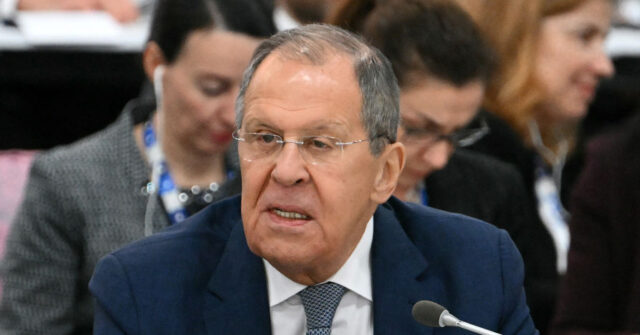Poland’s Foreign Minister Radek Sikorski has taken a strong stance against Russia’s participation in the Organization for Security and Co-operation in Europe (OSCE), calling for its expulsion due to Moscow’s aggressive actions aimed at re-establishing its influence in Eastern Europe. This assertion came during a recent OSCE meeting held in Malta, which was attended by Russian Foreign Minister Sergei Lavrov. As Lavrov spoke, several European delegations, particularly from nations that experienced Soviet control, staged a walkout in protest, signaling their disapproval of Russia’s role in the ongoing conflict in Ukraine and the broader threats posed by its expansionism.
Leading the dissenting delegations was Sikorski, a seasoned diplomat known for his outspoken views on Russian aggression. Prior to the meeting, he expressed his unwillingness to engage with Lavrov, whom he accused of disseminating falsehoods regarding Russia’s military actions in Ukraine. During the conference, he reiterated this sentiment, emphasizing to the Russian delegation that they would not be swayed by what he described as a “cascade of lies.” Sikorski’s comments underscored a broader sentiment among Central and Eastern European states, which feel particularly vulnerable to Russian ambitions and are determined to resist any attempts at re-establishing a sphere of influence over former Soviet territories.
The walkout at the OSCE meeting included delegations from Poland, Lithuania, Estonia, and Czechia, a move signifying their united front against perceived Russian imperialism. Sikorski’s call for Russia’s suspension from the OSCE was grounded in the argument that the organization had effectively been rendered “paralyzed” by Russia’s continued membership, particularly in the context of its ongoing military actions in Ukraine. However, suspending Russia from the OSCE raises complicated questions about the organization’s original purpose, which was to promote dialogue and cooperation between East and West during the Cold War, aiming to prevent conflict and facilitate communication between nuclear powers. The absence of meaningful dialogue between the U.S. and Russia complicates this framework, leading to concerns about escalating tensions.
While the shockwaves from Lavrov’s attendance and the subsequent walkout were felt diplomatically, U.S. Secretary of State Antony Blinken’s decision to remain at the conference highlighted a contentious balance between maintaining dialogue with Russia and supporting allies in Eastern Europe. The current diplomatic landscape suggests a significant rift in communication between Washington and Moscow, a situation that has persisted for months amid rising geopolitical tensions. However, there have been recent developments indicating the potential for renewed dialogue, including a rare phone call between U.S. and Russian military leaders, signaling a possible thaw in communications at the military level.
At the OSCE meeting, Lavrov did not miss the opportunity to launch a counter-narrative, accusing Western nations of exacerbating the situation in Ukraine and framing the U.S. as seeking a new adversary following its chaotic withdrawal from Afghanistan. He contended that the West’s involvement in Ukraine was part of a larger strategy to reassert its influence and combat a fabricated threat, alluding to what he perceived as a revival of Cold War hostilities. His remarks served to deflect blame onto the West, further complicating any diplomatic resolution to the ongoing crisis.
In conclusion, the recent events at the OSCE meeting in Malta reflect the high stakes and profound divisions in the current geopolitical climate, particularly surrounding Russia’s actions in Ukraine. Sikorski’s insistence on confronting Russian influence encapsulates the deep-seated fears of Eastern European nations that lived under Soviet domination. At the same time, Lavrov’s theatrical pivot, aimed at portraying the West as the aggressor, underscores the complexity of achieving meaningful dialogue and resolution. As tensions remain high, the challenge for the global community continues to be navigating these fraught discussions, balancing deterrence against the necessity for dialogue in preventing further escalation.

